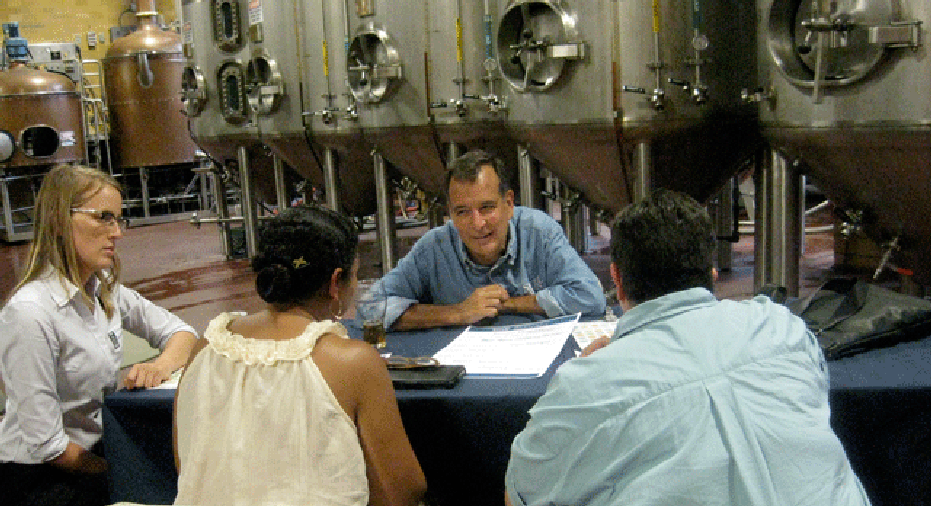Sam Adams Founder Brewing Opportunities for Startups

You wouldn’t expect business owners to be willing to help out their competitors with advice and financing. However, Jim Koch, founder of Samuel Adams Beer Company, said that is his goal.
Koch hails from a family of brewmasters, but admittedly knew very little about how to start a business when he began making his own beer in his basement 28 years ago. Despite an MBA and JD from Harvard, as well as seven years spent at the Boston Consulting Group, Koch said he lacked the guidance and funding needed to start up.
“I was passionate about beer, I knew the product and wanted to be my own boss,” he said. “But when I went to start my business, I didn’t know the nuts and bolts. If you don’t know how to sell your product, make a sales call, design a label, hire and fire people, your business is in jeopardy.”
Koch said he now wants to give startup microbrewers and small food service businesses the insight and financial opportunities he didn’t have when he ventured out on his own. He launched his “Brewing the American Dream” program in 2008, and has since lent out its first $1 million to 150 businesses in the food and beverage services industry.
The program partners with the nonprofit Accion to provide microloans to startups, and also offers advice and mentoring through speed-coaching sessions with microbrewers. Online resources are also available to help the businesses with accounting, marketing and management.
Like many, Koch said he feels small business growth is the match needed to light the economic recovery. However, he prefers to not cast too wide a net, by focusing on what he knows best—food and alcohol.
Right now, the program is making several loans a week and has just committed another $1 million in loans. Interest rates and repayment periods vary, Koch said but are roughly about 10%. The repayment rate is at over 95%, he said.
“This isn’t cheap money,” he said. “This isn’t a charity- it’s cheap compared to a credit card or another source of money, but this is not meant to be a charitable donation to a business. We screen for all of these loans, because it doesn’t do us any good to loan to a business that fails.”
Through the programs coaching and guidance, Koch said he feels strongly that the startups will succeed.
While many small businesses struggle to find financing from banks, Koch said he doesn’t think they’re being overlooked or misunderstood. It simply isn’t “good business” for them to take on such risk without great return.
“They have figured out that they can’t make money doing loans like this,” Koch said. “[Lending to startups] has to be a philanthropic activity or part of your social responsibility. It’s not profitable. But we want them to grow, succeed, and pay the money back.”
And as for budding brewers, chefs or restaurateurs, Koch said to always put the product first.
“Make sure you have a really great product, and that it tastes great,” he said. “If you don’t have that, you aren’t sustainable.”



















